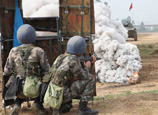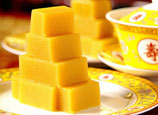
The shift was clearly directed at China, whose rapid rise has left the long-time superpower across the Pacific ill at ease.
It is understandable that the U.S. would not want to lose its place as a superpower, but it cannot maintain its position by containing emerging powers.
China has no interest in vying for dominance on the international arena. Chinese officials and scholars have repeatedly stressed their belief that China and the U.S. need to build a "community of interest," a relationship based on their converging and shared concerns.
It would be wise for the U.S. to handle challenges by forging better cooperative ties with China and seeking more ways to benefit from the development of the world's largest developing country.
Around the time of the signing of the National Defense Authorization Act of 2013, which contains the satellite export policy, U.S. media reported that China plans to test what the U.S. calls "anti-satellite technology" this month.
They asserted that such tests could put the country's Global Positioning System (GPS) at risk of being attacked.
These tests should be no cause for concern, as China has the right to develop relevant technology that has only been mastered by the U.S., so far. But it begs the question: If the U.S. can do it, why can't China?
It is time for the U.S. to abandon its Cold War mentality in which a powerful country with a different political system must be an antagonist.
A man of words and not deeds is like a garden full of weeds, and a superpower that calls itself a "responsible player" in the global arena should take more care to hoe its rows.















 1.8 million students have taken NEEP. What motivate them to continue study rather than work?
1.8 million students have taken NEEP. What motivate them to continue study rather than work?


![]()
